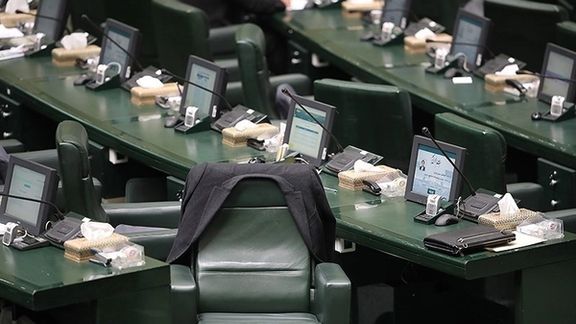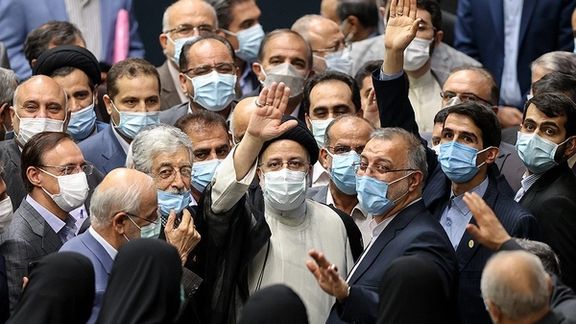Media In Iran Slam Performance Of Hardliner Parliament

As the Iranian year was coming to an end on March 20, some local media presented a more than disappointing assessment over the performance of the parliament.

As the Iranian year was coming to an end on March 20, some local media presented a more than disappointing assessment over the performance of the parliament.
The election for the next parliament (Majles) is less than 11 months from now, and the current parliament, whose members call themselves "revolutionaries" has had no achievement to be proud of.
Khabar Online website in Tehran summarized the "radical parliament's" track record saying that the Majles was "unable to meet the society's demands and incapable of supervising the government's performance” or holding it accountable for shortcomings the media have been complaining about on a daily basis.
According to the website, lawmakers have failed to address issues such as the the economic hardship people face, the fall of the Iranian currency, deadlock in the country's foreign policy, international isolation, inefficiency of local governors and other officials including cabinet ministers. They have not been able to impeach any minister although they talked about it every single day.
The Majles has not been able even to make the government accountable for the promises given to the people. Nor the Majles asked any serious questions about why the government has not been able to control inflation.
Prices of cars, houses and rents have been constantly on the rise, turning necessities into dreams for citizens. Journalists in Iran tweeted that in some areas people buy their daily bread on credit from neighborhood bakeries, promising to pay at the end of the month.
When at one point in February the US dollar rose to 600,000 rials, Vice President Mohammad Mokhber told the Majles that he cannot do anything about it and lawmakers "can take it or leave it." Parliament simply listened to Mokhber and took no action.

During the year, most proposed bills ended in controversy and remained inconclusive. Here are some examples:
Hijab
While opposition to compulsory hijab was the one of the root causes of the uprising that shook the country for more than five months, the Majles discussed a bill that called for sending text message threats to women and freezing their ID cards and closing their bank accounts as well as forcing them to pay a fine for not wearing their headscarves "properly". They seemed not to care that this was exactly why Mahsa Amini was murdered in police custody.
Women
Another controversial bill proposed to restrict women's freedom to travel abroad, demanding that all women should have the consent of their husband, father or grandfather for a travel permit. Apart from everything else, those who drafted the bill failed to realize who would sign the permit for an 80-year-old woman who has no husband or father. After several denials by lawmakers, no one still knows if the bill has gone any further.
Documenting Crimes and Brutality
As photos and videos of police brutality during the protests went viral on social media, the parliament approved that filming such scenes is strictly prohibited. The bill even called for harsh punishment for anyone who circulated such images on social media or sent them to foreign-based media. Those breaking the law could be charged with colluding with the enemy and acting against national security, the bill stipulated.
"Fake" News
Another controversial bill called for prosecution of anyone who posted any "false" story on social media. The bill said that courts, which are in fact controlled by intelligence agencies, are the authority to determine if a news story was fake. Basically, the bill meant that any account of events different from the official version is punishable.
Other similar bills included barring university students from travelling abroad as a punishment for taking part in protests, as well as controversial attestations that forced government employees to learn to recite the Koran.
While these bills backed by hardliners may not have majority support, supporters can get them passed at the opportune moment. Meanwhile, the parliament has not tackled any legislation to alleviate the financial hardships endured by citizens.